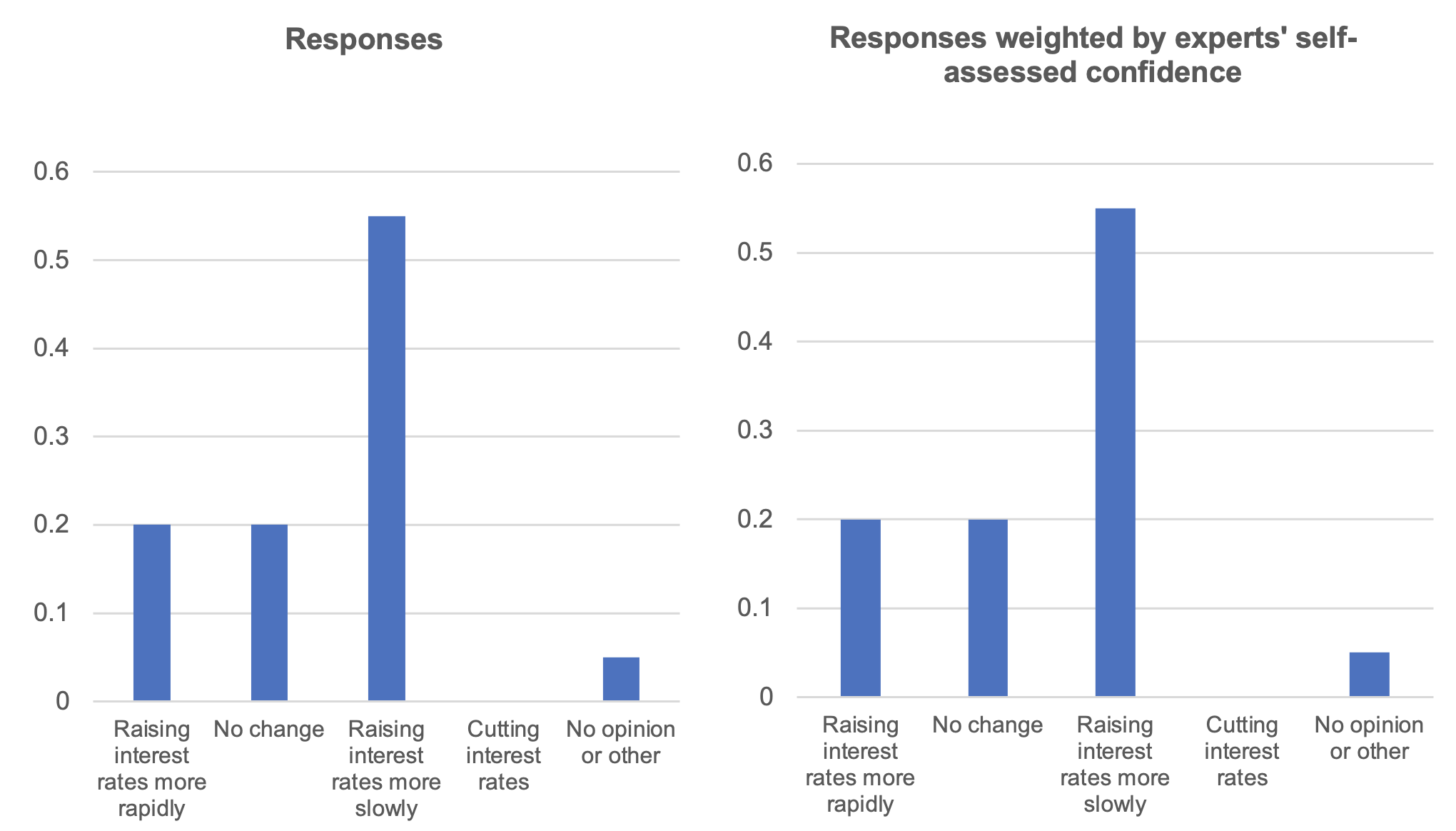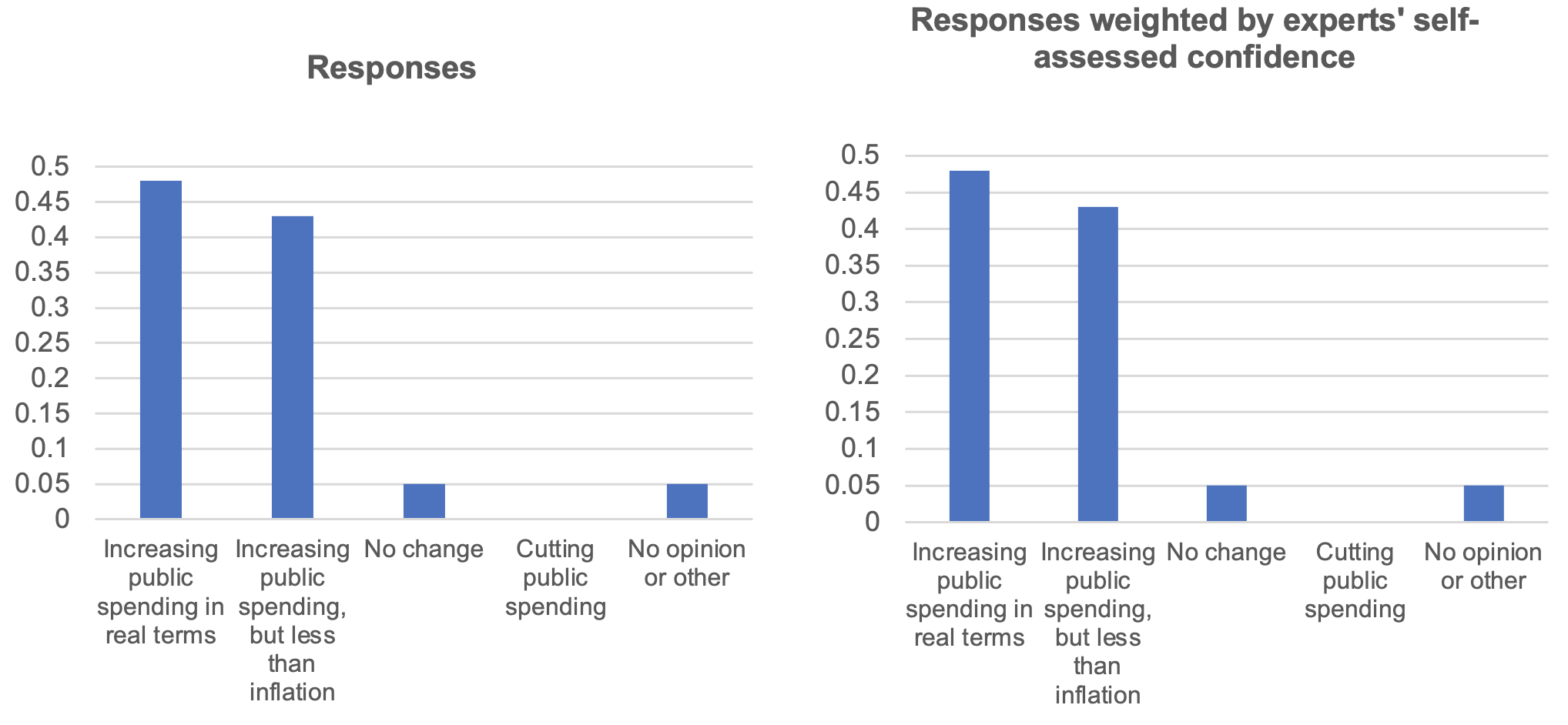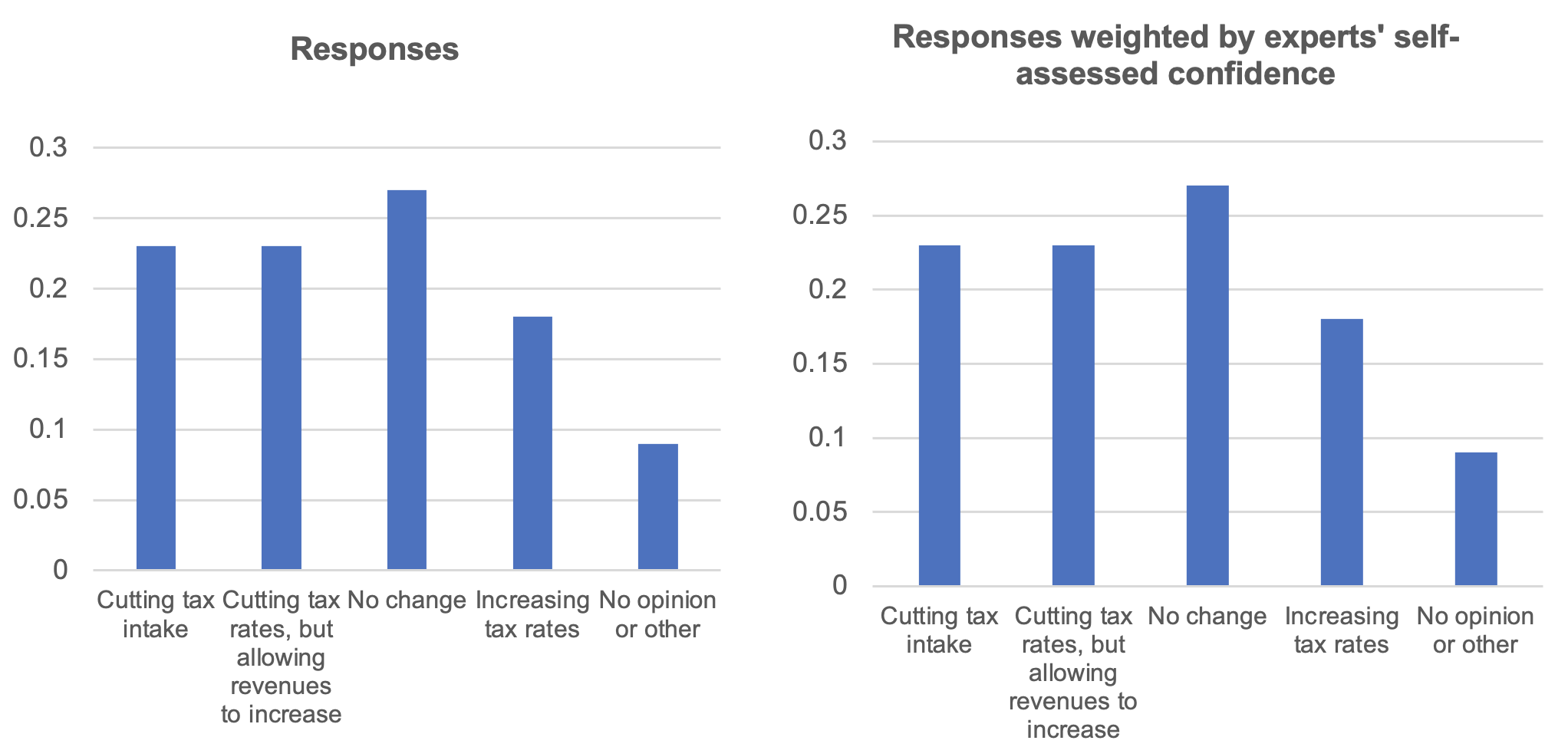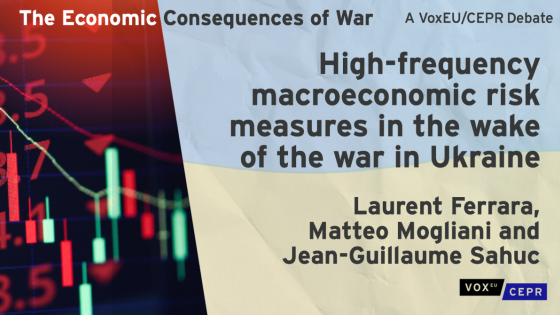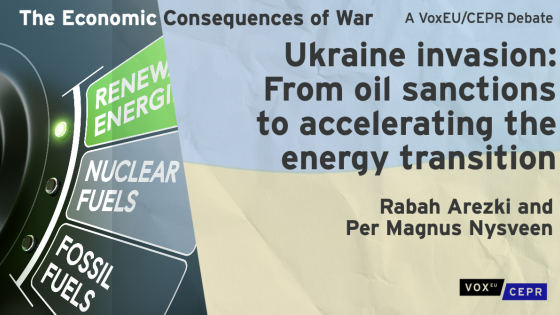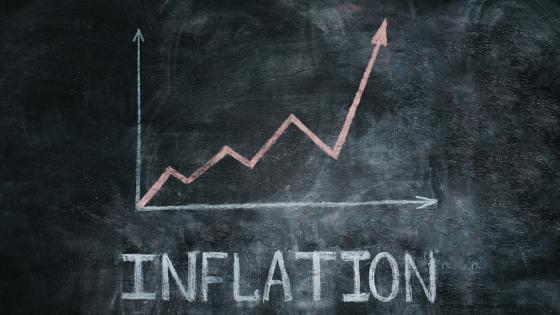The Russian invasion of Ukraine, which began on 24 February 2022, has had a devastating humanitarian impact on Ukraine. The resultant sanctions on Russia will surely have a determinantal impact on the Russian economy – how much will depend on the fortitude of the sanctioning countries. The conflict will also affect the world economy, regardless of sanctions (e.g. Artuc et al. 2022, Korn and Stemmler 2022, Muellbauer and Aron 2022). At the time of writing, oil prices have reached $120 a barrel – double their price a year ago. This is on back of already surging world inflation, most likely driven by supply constraints (see the January CfM survey1 on the topic and the Vox column here).
This will of course affect the UK economy too, with the Office of Budget Responsibility (OBR) forecasting inflation to peak at 9% at the end of 20222 – a dramatic update of its forecast in October 2021 that predicted inflation at slightly over 4%. The OBR predicts that the economy will grow 1.6% this year: Not quite a recession, but it is tepid growth, nevertheless, and down from their 3.2% October forecast. If the EU were to ban all oil imports from Russia, Chancellor Rishi Sunak estimates that the war could cost the UK economy £70 billion.3 Combined, all these negative forces will lower the average disposable incomes in the UK, adjusted for inflation, by 2%, according to OBR estimates.
Low growth and high inflation are precisely the effects we would expect given a supply shock to energy supplies, even with limited direct economic exposure to the combatants.
Beyond oil prices, Russia and Ukraine are both major wheat suppliers and producers of several raw materials. The war also adds uncertainty to business investment and volatility to financial markets. The Institute for Government estimates only a minor impact of UK sanctions of Russia on the UK economy.4
How can policy respond to cushion the impact of the economic fallout of the war? The Bank of England voted in March to increase the Bank rate by 0.25 percentage points to 0.75%.5 The Monetary Policy Committee (MPC) concurs with the OBR forecast that inflation will near double digits this year. The MPC writes that its “remit is clear that the inflation target applies at all times, reflecting the primacy of price stability in the UK monetary policy framework”. Perhaps in justification of only moderate interest rate hikes in face of surging inflation, the MPC announcement continues: “The framework also recognises that there will be occasions when inflation will depart from the target as a result of shocks and disturbances. The economy has recently been subject to a succession of very large shocks. Russia’s invasion of Ukraine is another such shock… This is something monetary policy is unable to prevent.” MPC member Silvana Tenreyro outlined this view in a February speech,6 where she argues that temporary supply-driven shocks should be accommodated.
On the fiscal side, the Chancellor’s spring budget statement outlines several measures to confront the erosion of living standards due to surging inflation exacerbated by the war in Eastern Europe.7 The Chancellor announced a 5p cut in petrol duties per litre for the upcoming year, an increase in the base income that is exempt from National Insurance duties, and a 1 percentage point reduction in the basic rate of income tax starting in 2024, among other measures. Reactions to the budget have been mostly tepid. The budget has been critiqued as a moderate reduction in tax burdens on top of previous tax hikes announced last year.8 The fuel duty cut has been criticised as being unable to address fuel shortages.9
This month’s survey asked whether and what the UK government could do to alleviate the economic fallout of the geopolitical events that have unfolded this year. It first asks about whether the Bank of England should change its policy trajectory in response to the war. The following two questions ask about fiscal/budgetary policy.
Question 1: Relative to the Bank of England’s planned trajectory for interest rates at the beginning of the year, the Bank should respond to geopolitical events by…
A majority of 55% of the panellists think the Bank of England should increase interest rates less dramatically that it had planned at the beginning of the year, due to the Russian invasion. The remainder of the panel is split evenly, with 20% calling for no change in policy and 20% recommending faster interest rate increases.
The majority opinion treats the Russian invasion of Ukraine as a supply-side shock that affects the UK economy primarily through increases in fuel prices and thinks that the Bank of England should “see through” this shock and perhaps even stimulate the economy to address demand deficiencies, with the effects of Covid still present. Jumana Saleheen (Vanguard Europe) writes: “Events in Ukraine are a stagflationary shock to the UK economy… Faced with that trade-off between high inflation and low growth the Bank will need to pause the rate hiking cycle.” Dawn Holland (NIESR) elaborates that “inflation is still largely driven by energy prices. Since the outlook for energy markets is so uncertain, a wait-and-see approach is more prudent than aggressive rate hikes.” Richard Portes (London Business School and CEPR) argues for further stimulating the economy, not merely looking through the supply shock: “Other forces are already affecting demand negatively, and they will intensify. It is unwise to add interest rate pressures, especially since the inflation problem is due to a supply shock which we may reasonably expect to moderate over the course of this year.”
In contrast, Martin Ellison makes the case for a more contractionary approach. He writes: “The bottom line is that inflation in February 2022 was 6.2%. The Bank of England can argue as much as it wants that it should ‘look through’ transitory inflation but the optics of not responding to such high inflation [aren’t] good. It’s the first time the inflation targeting framework has been tested on the upside, so a mild increase in the speed of tightening is warranted to signal commitment to bringing inflation down.”
Question 2: Relative to the budgetary plans at the beginning of the year, the UK government should respond by…
The panel is nearly unanimous that the government should increase public spending but is split roughly evenly on whether these increases should keep up with inflation. Forty-eight percent of the panel believe that public spending should increase faster than inflation, thereby increasing in real terms; 43% think that public spending should increase, but not as fast as inflation; 5% voted for no change; and 5% were uncertain.
The primary argument for public spending increases were the direct costs and geo-strategic implications of the war. Wouter den Haan (London School of Economics) argues for the politics and strategic value of the public spending increases: “Accommodating fiscal policy will be helpful politically in imposing sanctions on the Russian government which will have massive short-term benefits for Ukraine and massive long-term benefits for Europe.” Dawn Holland notes that: “The Government's commitment to support local communities that host arrivals from Ukraine will bear a cost, probably requiring an increase in public spending in real terms,” depending on the number of arrivals. She adds that: “Low-income households will also need support in the face of high inflation.” This is also the view expressed by Ethan Ilzetzki (London School of Economics): “The cost of living was increasing and living standards were set to decline even before the Russian invasion… Redistributive fiscal policy that enhances the social safety net should be supported and increase in real terms.”
Those supporting more limited increases in public spending believe that fiscal support should be targeted. Kate Barker (British Coal Staff Superannuation Scheme and University Superannuation Scheme) states it thus: “Public spending should go up but in particular places - some benefits, support for health and social care, and schools. Local authority settlements will probably need another look. But some items my merit tight control - pace of some capital spending for example.” Jumana Saleheen endorses this view: “Given that poorer households spend a larger share of their income on in fuel and food, I would like to see the UK government respond by increasing support to the poorest households.”
Question 3: Relative to the budgetary plans at the beginning of the year, the UK government should respond by…
Views are varied on the question of taxes. Nearly half of the panel supports cutting taxes. Twenty-three percent of the panel would like to see tax rates cut to the extent that government revenues would decline, that is giving back to the public more than the stealth tax increases caused by inflation. A similar share of panel members would like to see the government cut taxes moderately, while allowing the public purse to expand due to inflation. Eighteen percent of the panel take the opposite approach and calls for tax rate increases and 27% call for no change in policy.
There was a mixture of arguments for lower taxes. Some echoed the arguments for higher public spending: Social support for households suffering the effects of higher prices and the desire to maintain the public’s support for the Ukrainian cause. Nicolas Oulton (London School of Economics) sees tax cuts as substitute for interest rate cuts, whose increases he supported in his response to Question 1.
Others supported tax measures that included both tax hikes and cuts. Alessandra Bonfiglioli (Queen Mary, University of London) and Kate Barker both called for higher taxes on the rich, with the latter suggesting that the scheduled increase in National Insurance be reversed and an increase in the Universal Credit. David Cobham (Heriott Watt University) also called for a windfall tax on oil and gas producers.
References
Artuc, E, G Falcone, G Porto and B Rijkers (2022), “War-induced food price inflation imperils the poor”, VoxEU.org, 1 April.
Korn, T and H Stemmler (2022), “Russia's war against Ukraine might persistently shift global supply chains”, VoxEU.org, 31 March.
Muellbauer, J and J Aron (2022), “The global climate accelerator and the financial accelerator: Commonalities and implications from Putin’s war”, VoxEU.org, 24 March.
Endnotes
1 https://cfmsurvey.org/surveys/surging-inflation-uk
2 https://obr.uk/efo/economic-and-fiscal-outlook-october-2021/
3 https://www.ft.com/content/70fc440a-4fb4-4d8f-93ab-888f68285131
4 https://www.instituteforgovernment.org.uk/explainers/ukraine-war-uk-economy
5 https://www.bankofengland.co.uk/monetary-policy-summary-and-minutes/2022/march-2022
6 https://www.bankofengland.co.uk/-/media/boe/files/speech/2022/the-economy-and-policy-trade-offs-speech-by-silvana-tenreyro.pdf?la=en&hash=A8423B33372FA0C9A8500EAA47068B2F7B555CAC
7 https://www.gov.uk/government/publications/spring-statement-2022-documents
[1] https://www.ft.com/content/d7c26044-a770-4d9b-a668-b15f67a2f8bf
[1] https://www.bloomberg.com/news/audio/2022-03-24/spring-statement-impossi...

